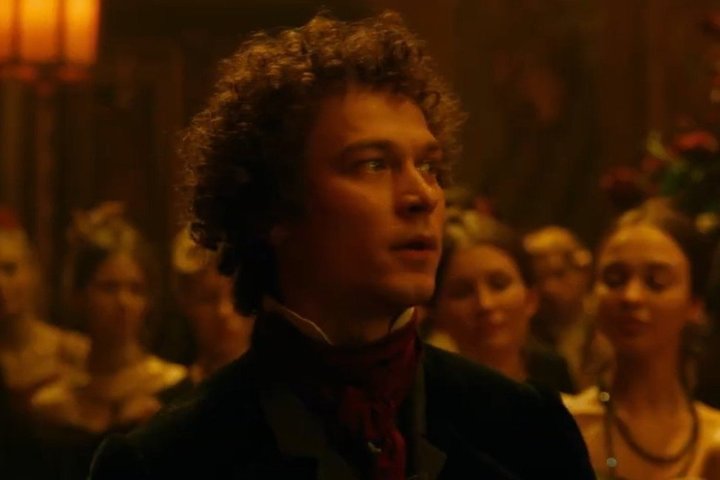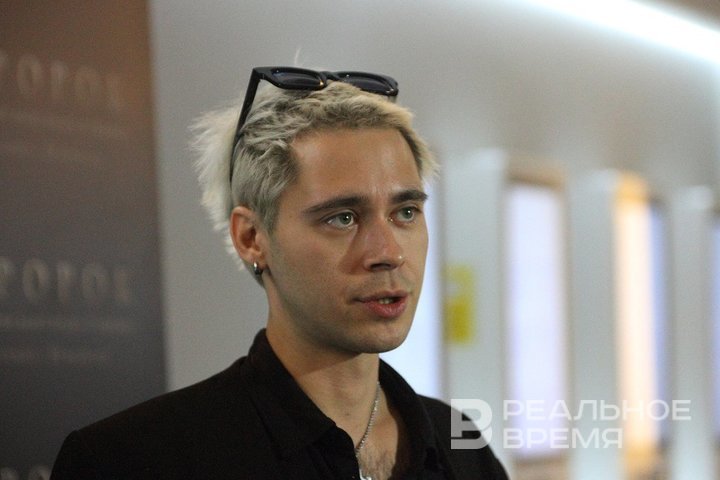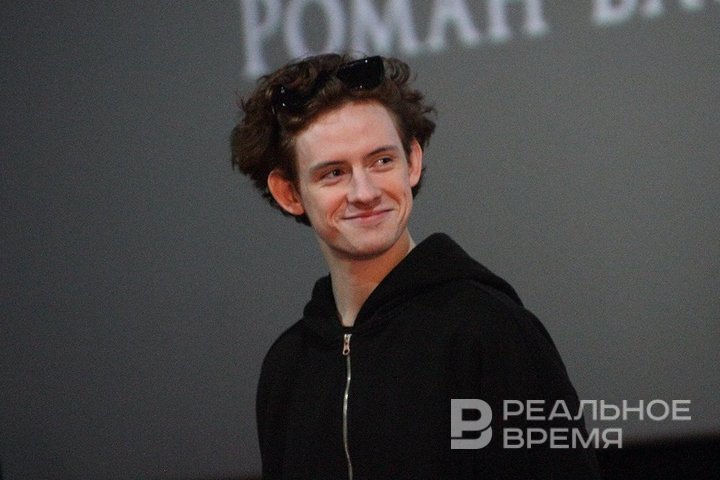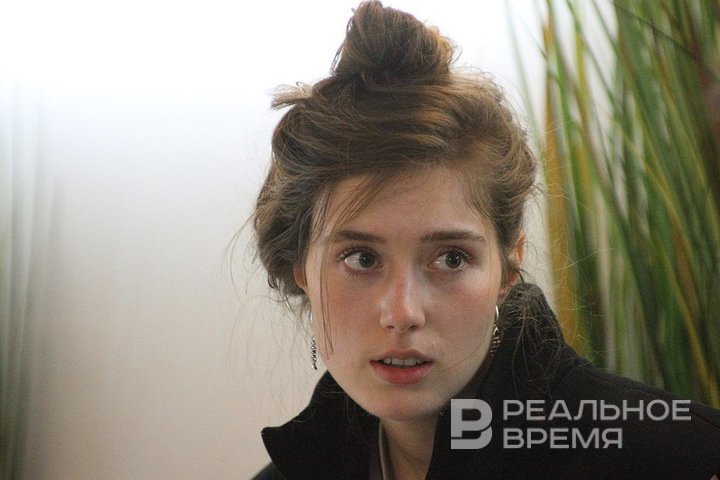Yura Borisov embodies ‘our everything’ on screen
The film “The Prophet. Story of Alexander Pushkin” has been presented in Kazan

Felix Umarov's debut feature film, the musical biopic “The Prophet. Story of Alexander Pushkin” was screened on 14 February. In Kazan, it was pre-screened at Cinema 5 Park House with the participation of the director, as well as actors portraying Natalia Goncharova and Ivan Pushchin. Can “our everything” be, as in the old joke, a rapper?
A few interesting episodes from the life of Alexander Pushkin
The film begins with a fuss in a bookstore where Andrey Urgant is selling Onegin. The camera rushes through the vibrant crowd, sometimes struggling to focus, eager to capture everything at once.
“In the first version, there was cholera, Pushkin travelled to Turkey, and Arina Rodionovna waved to us while we were drafting the script," says Umarov, who previously worked on music videos, commercials, and the series Home Field. “But at some point, we realised that if we were to make such a film, we'd have to split it into two parts, fitting everything into four to five hours.”
In 130 minutes, Umarov shows several episodes from Pushkin's life performed by Yura Borisov (the poet is never called Alexander Sergeevich in the film, only Alexander and Sasha). At first, he arranges an altercation with the supervisor Martin Piletsky at the lyceum, switching to rap: “We have been taught freedom since childhood at the lyceum, and you will not be able to take it away.”
“I wanted to overcome the time barrier that exists between today's viewers and the people who lived then. I began to analyse, wondering, if Pushkin were alive now, who could he be? It occurred to me that perhaps the poets of that time were akin to musicians. For obvious reasons, it was not possible to listen to them, but the poems were printed, they were passed around. As a result, I realised that in order for the modern audience to realise the greatness of the poet of that time, the musical genre is more suitable than ever," Umarov explains.
Next, young Pushkin embarks on carousals in St. Petersburg. By the will of the screenwriters, he has two main friends — the red-haired Ivan Pushchin (Ilya Vinogorsky) and the handsome Konstantin Danzas (Roman Vasiliev was also supposed to come to the screening, but fell ill).
By the way, during the filming Borisov rented an apartment in St. Petersburg and held parties every evening where the actors played cards by candlelight, with one stack left to the poet's spirit. Sometimes he won.

But he's not Byron, he's got a report
At one of the parties, after reading “Ode to Liberty”, he is honoured by Princess Golitsyna (Svetlana Khodchenkova) and takes Zhukovsky (Ilya Lyubimov) under her wing.
But for the lines about “the ruins of autocracy,” he is sent south into the arms of Senator’s wife, Countess Elizaveta Vorontsova (played by Anna Chipovskaya), who insists he should write more like Byron. “That's not how Byron lives in Russia," sighs Pushkin, choosing between reports and poetry.
Pushkin is sent to the sea by Benkendorf (played by Sergey Gilev), whose presence is perhaps the only major historical liberty taken— a fact even Umarov acknowledges, as Alexander Khristoforovich was still at war at the time.
But the chief of the Third Department, that is, the political police, is necessary for the second important theme in the film after the poet grows up — his relationship with the authorities.
The authorities, on the one hand, protect him, on the other, cherish him. Because once in exile in Mikhailovsky, Pushkin gives up partying and plunges into work. While he is in exile, Pushchin and the Decembrists swear allegiance to Prince Konstantin — only to be sent to the gallows and exciled to Siberia. The power of the poet cannot protect only in the very last case.

Tennis with the Emperor
This is likely where we finally bid farewell to the jovial poet, as the story shifts to his relationship with his future wife, Natalya Goncharova. Alyona Dolgolenko admits that she was approved for the role two days before the start of filming, although before that, after casting, feeling something, she studied the materials on the poet's wife a little:
“I just didn't have time to prepare enough. I just had to pull myself together and be. That's what I've been trying to do. I guess I've become kinder. It affected me somehow, but to be honest, I'm still so shocked by everything that it seems to me it should take another year for me to say how.”
Dolgolenko has already played with Borisov in the TV series “Lesson”.
During the beginning of his relationship with Goncharova, Pushkin again goes to Benkendorf and asks for a letter of trustworthiness. It seems that their recitative skirmish is one of the best moments of the film, when the head of the department quotes the poet himself, acknowledging that he reads it, and pointing out that they have common goals: to protect people's turbulent consciousness.
The text, based on the deconstruction of A.S. Pushkin's poetry, like some others, was written by Aigel Gaisina, the vocalist of Aigel. The music for the film was also composed by Yolka and The Hatters.
The second important figure in power is Emperor Nicholas I (Evgeny Schwartz), with whom Pushkin plays tennis and from whom he receives the humiliating title of chamber junker. In addition, the tsar criticises his story of Peter. But Peter is not a monument," the author notes, loosening the fourth wall.
“There are facts that we intentionally interpreted a little, let's say, in order to create, in our opinion, a pure emotional portrait of Alexander Sergeevich and try to capture the unique spirit of the poet, who lit up like a sparkler 200 years ago and continues to shine on us to this day," Umarov explained.

From “slender female legs” to “burn with a verb”
This is Umarova's Pushkin: a maturing former reveler, looking for himself between family, supervision, and the imperial court and finding solace in poetry. Despite that the filming takes place in incredibly beautiful places — from the Rose Pavilion in Pavlovsky Park to the memorial apartment museum at 12 Moika. Yura Borisov mostly reads poetry against the backdrop of panoramic views of Russia. At balls, his performances look like a joke, but here the school curriculum and civic memory do their job.
If we accept the conditions of Umarov's game with his bright and modern speech, and certainly not strive for a documentary approach down to the comma, then “The Prophet” is an interesting story. Indeed, it has the story of the poet who devoted four stanzas to women's legs in the first chapter of Onegin, and then erected a “Monument” to himself. Perhaps, someone would even like to make friends with such a person. At the same time, the story of his relationship with his wife does not go beyond melodramatic, against the background of the gripping theme of his relations with the authorities.
“This is my debut and I would not like to become a director of one format," says the director, who at the end of the film makes a joke about a possible sequel. “I'd like to try.”